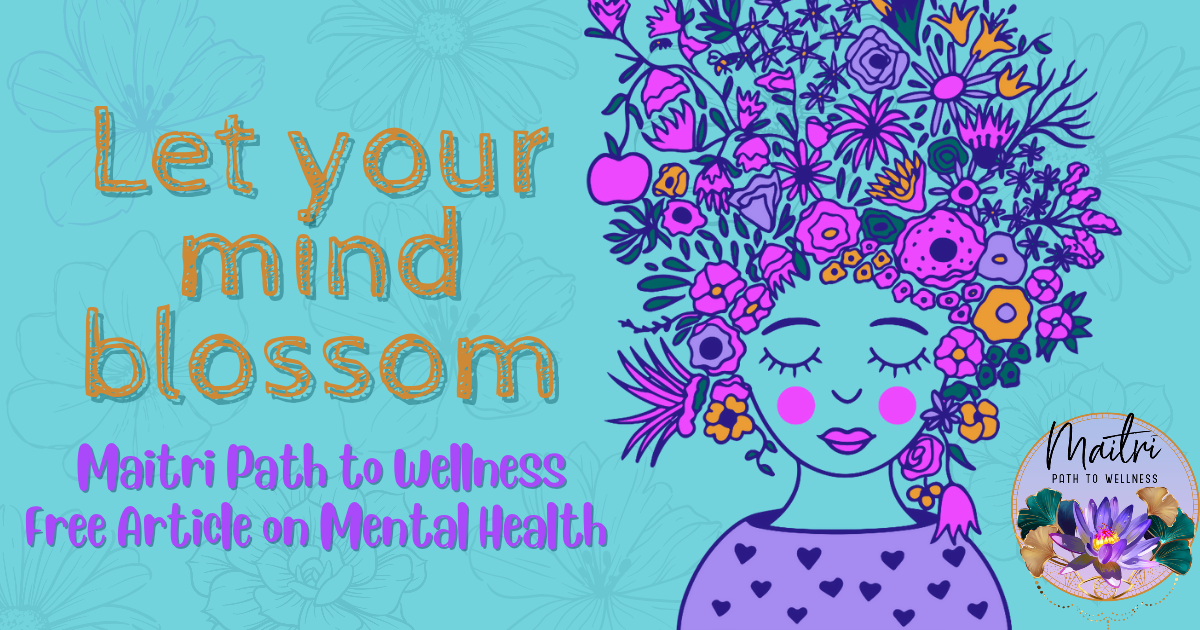Getting a good night’s sleep is crucial for maintaining optimal mental health. Sleep hygiene, which refers to the habits and practices that promote healthy sleep, plays a significant role in improving overall well-being. In this article, we will explore ten game-changing tips to help you sleep like a pro and enhance your mental health.
Importance of Sleep for Mental Health
Quality sleep is essential for various cognitive functions, emotional well-being, and overall mental health. When we prioritize sleep, we provide our brains with the restorative processes necessary for maintaining optimal functioning. Lack of sleep can lead to increased stress, mood disturbances, difficulty concentrating, and even more severe mental health issues.

Understanding Sleep Hygiene
A. Definition and Concept
Sleep hygiene encompasses a set of practices that promote consistent and restful sleep. It involves creating a sleep-friendly environment, establishing regular sleep patterns, and adopting healthy habits throughout the day.
B. How Sleep Hygiene Affects Mental Health
Implementing proper sleep hygiene can have a profound impact on mental health. By prioritizing sleep and following specific strategies, we can improve sleep quality, regulate mood, reduce stress levels, enhance cognitive function, and boost overall well-being.
Tip 1: Establish a Consistent Sleep Schedule
A. Benefits of Regular Sleep Patterns
Maintaining a consistent sleep schedule helps regulate the body’s internal clock, promoting better sleep quality and overall mental health. Going to bed and waking up at the same time every day helps synchronize our natural sleep-wake cycle.
B. Strategies for Maintaining a Consistent Schedule
To establish a consistent sleep schedule, set a bedtime that allows for sufficient sleep duration and stick to it, even on weekends. Create a relaxing bedtime routine and avoid stimulating activities close to bedtime.
Tip 2: Create a Relaxing Sleep Environment
A. Optimizing Your Bedroom
Designing a sleep-friendly bedroom environment can significantly improve sleep quality. Keep your bedroom cool, dark, and quiet. Use comfortable bedding and ensure proper ventilation.
B. Reducing Noise and Light Disturbances
Minimize noise disruptions by using earplugs or a white noise machine. Install blackout curtains or wear an eye mask to block out light that may interfere with your sleep.
Tip 3: Prioritize Physical Activity
A. Exercise and Its Impact on Sleep Quality
Engaging in regular physical activity has been shown to improve sleep duration and quality. Exercise helps regulate the body’s energy levels, promotes relaxation, and reduces anxiety and stress, all of which contribute to better sleep.
B. Finding the Right Exercise Routine
Experiment with different types of exercise and find what works best for you. Aim for at least 30 minutes of moderate-intensity exercise most days of the week. Avoid intense workouts close to bedtime.
Tip 4: Limit Stimulants and Electronics Before Bedtime
A. The Effects of Stimulants on Sleep
Stimulants like caffeine, nicotine, and certain medications can interfere with your sleep quality and make it harder to fall asleep. Avoid consuming stimulants several hours before bedtime.
B. Establishing a Digital Detox Routine
The blue light emitted by electronic devices can disrupt your sleep-wake cycle. Create a digital detox routine by turning off screens at least an hour before bed. Instead, engage in calming activities like reading or listening to soothing music.
Tip 5: Develop a Pre-Bedtime Wind-Down Routine
A. Relaxation Techniques to Promote Sleep
Incorporate relaxation techniques into your pre-bedtime routine to signal your body that it’s time to unwind. Try deep breathing exercises, meditation, gentle stretching, or taking a warm bath. Check out this article about breathing and meditation to reduce stress.
B. Creating a Personalized Wind-Down Ritual
Experiment with different activities that help you relax and find what works best for you. Establish a consistent wind-down routine that you can follow each night to prepare your mind and body for a restful sleep.
Tip 6: Optimize Your Sleep Environment
A. Choosing the Right Mattress and Pillows
Invest in a comfortable mattress and supportive pillows that suit your preferences. The right bedding can significantly enhance your sleep quality and overall comfort.
B. Experimenting with Sleep Accessories
Consider using sleep accessories like weighted blankets, earplugs, or sleep masks if they contribute to your sleep comfort. Experiment with different options to find what works best for you.
Tip 7: Manage Stress and Anxiety
A. The Link Between Stress, Anxiety, and Sleep
Stress and anxiety can disrupt sleep patterns and make it difficult to fall asleep or stay asleep. Managing stress levels effectively is crucial for promoting healthy sleep and mental well-being.
B. Effective Stress Management Techniques
Incorporate stress management techniques into your daily routine. Practice mindfulness, engage in relaxation exercises, journal your thoughts and worries, or seek support from a therapist or counselor.
Tip 8: Limit Napping During the Day
A. The Pros and Cons of Napping
While napping can provide a quick energy boost, excessive or ill-timed napping can interfere with your nighttime sleep. Limit daytime naps to short durations and avoid napping too close to bedtime.
B. Napping Guidelines for Improved Sleep Quality
If you feel the need to nap, aim for short power naps of around 20 minutes. Find a balance that allows you to reap the benefits of napping without compromising your nighttime sleep.
Tip 9: Watch Your Diet and Hydration
A. Foods that Promote Sleep
Certain foods contain sleep-promoting compounds that can enhance your sleep quality. Incorporate foods like kiwi, almonds, chamomile tea, and tart cherries into your diet to support better sleep.
B. Hydration and Its Impact on Sleep
Stay adequately hydrated throughout the day, but avoid excessive fluid intake close to bedtime to minimize nighttime trips to the bathroom. Find a balance that suits your body’s hydration needs.
Tip 10: Seek Professional Help When Needed
A. When to Consult a Healthcare Professional
If you consistently struggle with sleep issues despite implementing sleep hygiene practices, it’s important to consult a healthcare professional. They can evaluate your situation, diagnose any underlying sleep disorders, and provide appropriate treatment.
B. Available Treatment Options for Sleep Disorders
Various treatment options, such as cognitive-behavioral therapy for insomnia (CBT-I) or medication, are available for sleep disorders. Your healthcare provider can guide you in choosing the most suitable treatment for your specific needs.
Conclusion
Incorporating these ten game-changing sleep hygiene tips into your daily routine can transform your sleep and, in turn, improve your mental health. By prioritizing sleep, creating a relaxing sleep environment, adopting healthy habits, and seeking professional help when needed, you can enjoy the benefits of a happier, healthier mind.
FAQs
What is the 321 method for sleep hygiene?
The 321 method is a simple approach to sleep hygiene. It involves setting aside 3 hours before bedtime for winding down, completing 2 hours of non-stimulating activities, and finally, having 1 hour of dedicated relaxation time before sleep. This method helps signal your body that it’s time to transition into sleep mode.
What are the three S’s of sleep hygiene?
The three S’s of sleep hygiene are:
- Stick to a Schedule: Establishing a consistent sleep schedule helps regulate your body’s internal clock and promotes better sleep.
- Create a Sleep-friendly Environment: Optimize your bedroom environment by ensuring it is cool, dark, and quiet. Use comfortable bedding and minimize noise and light disturbances.
- Adopt a Soothing Bedtime Routine: Develop a relaxing routine before bed that includes activities like reading, taking a warm bath, or practicing relaxation techniques. This helps signal to your body that it’s time to wind down and prepare for sleep.
What is the most healthy sleep position?
The most healthy sleep position varies from person to person, but generally, sleeping on your back with a pillow to support your neck and spine is considered the most ideal. This position allows for natural alignment and reduces the risk of developing pain or discomfort. However, it’s important to find a sleep position that is comfortable for you and allows you to wake up feeling rested.
How much sleep do you need by age?
The recommended amount of sleep varies by age:
- Newborns (0-3 months): 14-17 hours
- Infants (4-11 months): 12-15 hours
- Toddlers (1-2 years): 11-14 hours
- Preschoolers (3-5 years): 10-13 hours
- School-age children (6-13 years): 9-11 hours
- Teenagers (14-17 years): 8-10 hours
- Adults (18-64 years): 7-9 hours
- Older adults (65+ years): 7-8 hours
These are general guidelines, and individual sleep needs may vary.
What is the 478 sleeping method?
The 478 sleeping method is a breathing technique that can help promote relaxation and ease into sleep. It involves breathing in deeply through your nose for a count of 4, holding your breath for a count of 7, and exhaling slowly through your mouth for a count of 8. Repeat this cycle several times to help calm your body and mind before sleep.
Why am I tired but can’t sleep?
Feeling tired but unable to sleep can be caused by various factors. It may be due to stress, anxiety, an overactive mind, or certain medical conditions. Poor sleep hygiene, such as irregular sleep schedules or excessive consumption of caffeine or electronic device use before bed, can also contribute to this issue. It’s important to identify potential underlying causes and establish a healthy sleep routine to promote restful sleep.
What is the Navy SEAL sleep technique?
The Navy SEAL sleep technique is a method designed to help individuals fall asleep quickly, even in challenging environments. It involves relaxing your body completely and focusing on one part at a time, starting from your toes and progressing to your head. By consciously relaxing each body part, you can promote a state of relaxation and facilitate the onset of sleep.
Why do I wake up at 3 am and can’t go back to sleep?
Waking up at 3 am and struggling to go back to sleep can be attributed to various factors. It may be due to stress, anxiety, or an overactive mind. Disruptions in your sleep environment, such as noise or discomfort, can also play a role. Additionally, certain medical conditions or lifestyle factors, such as caffeine or alcohol consumption, may contribute to waking up at this time. Establishing a consistent sleep routine, managing stress, and creating a conducive sleep environment can help address this issue.
How can I clear my mind and go to sleep?
Clearing your mind before sleep can be challenging but achievable with some strategies. Engaging in relaxation techniques, such as deep breathing, meditation, or progressive muscle relaxation, can help calm your mind. Writing down any racing thoughts or concerns in a journal before bed can also be helpful. Creating a bedtime routine that includes activities you find soothing, such as reading a book or taking a warm bath, can aid in transitioning your mind into a more relaxed state conducive to sleep.

Hey there friend! I’m Brenden Fasken, a passionate advocate for mental health and the transformative power of recovery. As a proud recovering addict, I’ve traveled the winding roads of addiction and emerged on the other side, ready to share my experiences and insights with you. I enjoy sharing blogs that delve into the complexities of mental health, substance use disorders, and the journey of personal growth. I aim to break down barriers, spark conversations, and offer a beacon of hope to those who may be struggling. So, join me as we embark on this empowering journey together, exploring the depths of our minds, celebrating resilience, and embracing the transformative potential within each of us.
Through my own recovery journey, I’ve learned that life’s challenges can be our greatest teachers. With each hurdle, I’ve gained insights and perspectives that have shaped my understanding of mental health and addiction. From the darkest moments to the brightest triumphs, I share personal anecdotes, reflections, and practical advice that I’ve gathered along the way. Together, we’ll navigate the labyrinth of emotions, challenge societal stigmas, and uncover the power of self-care and self-discovery. So, buckle up and get ready for an engaging and insightful ride as we explore the nuances of mental health and embark on a shared quest for personal growth and well-being.

